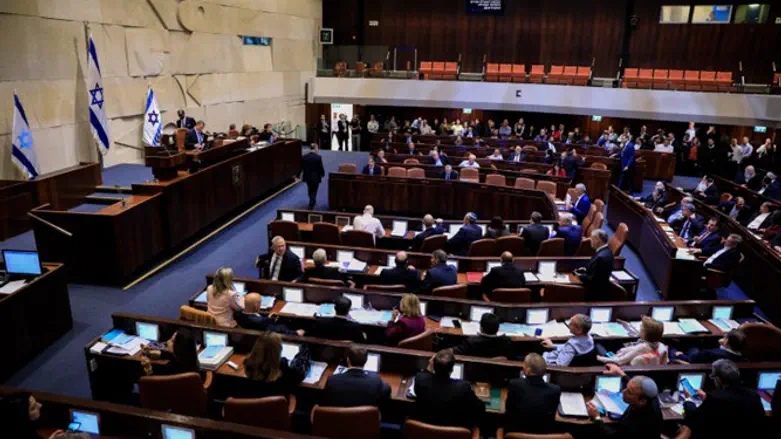
The coalition agreements for the new government include several laws which will change the religious status quo in Israel.
Included in the agreements, most of which were first publicized by News 12, are a promise to Meretz to push the issue of public transportation on Shabbat (Sabbath), and a promise to Yisrael Beytenu to cancel the "Supermarkets Law" instituted by current Interior Minister Aryeh Deri (Shas), as well as the Reform Western Wall Plan.
Under Jewish law, travel by vehicle, including for short distances, is prohibited on Shabbat, other than in life-threatening situations.
The agreement with Labor includes the creation of a "Jewish Renewal" division in the Diaspora Ministry, which will fund connections with Reform communities abroad.
An agreement with the Yamina party includes the appointment of Religious Zionist chief rabbis. In recent decades, the position has been held by haredi rabbis.
Kikar Hashabbat quoted a document stating the new government's basic principles includes a section emphasizing that, "the coalition parties commit to supporting the legislation of a 'Draft Law' in accordance with the Defense Ministry's draft, as it was approved in its first reading during the 20th Knesset, including a temporary order for the transition period, so that the age of exemption will stand at 21."
"In addition, and in order to provide a comprehensive solution for the issue, the Prime Minister and Defense Minister will examine the activation of a new model in the field of civilian National Service for certain populations.
"For this purpose, a committee will be created, headed by a representative of the Prime Minister and a representative of the Defense Minister, which will present its conclusions to the government within 90 days."
In 2017, Israel's Supreme Court court tossed out the 2015 draft law, passed at the behest of the haredi factions and replacing a 2014 law which had been backed by Yesh Atid.
At the time, the court gave the government one year to pass a replacement law, but the failure to reach an agreement between haredi lawmakers and Yisrael Beytenu forced the government to request two extensions from the court.
The court delayed implementation of its ruling against the 2015 law until January 15th, 2019, but said the second extension will be the last. However, the coalition broke apart before the deadline, largely due to disagreements over the Draft Law, essentially freezing the status quo on the issue and hurling Israel into over two years of chaos, which featured four rounds of elections.
